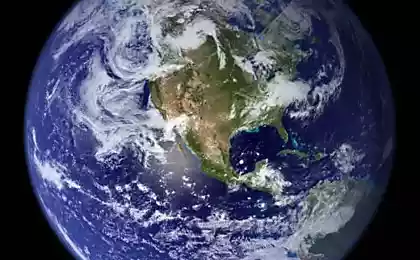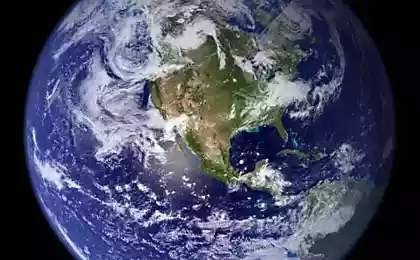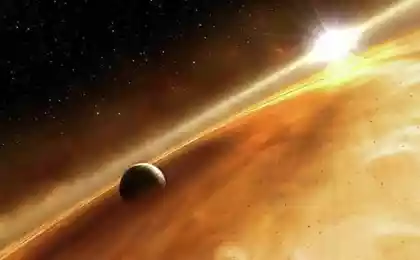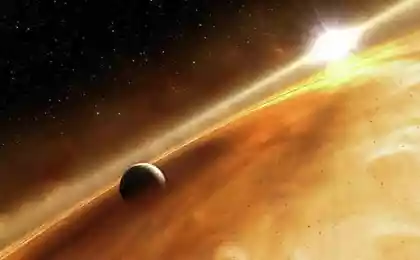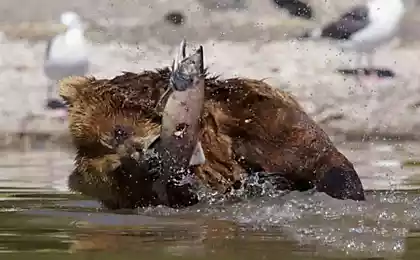207
Five long-lived animals of our planet
In the Guinness Book of Records, the recorded record for human life expectancy is the age of 122 years. This is how long the French Jeanne Louise Calma lived, born on February 21, 1875 in Arles. But there are centenarians among animals. Today about the record-holders-long-lived among animals. Whale shark
Whale sharks, which scientists consider the largest fish in the world. Whale sharks feed on plankton, schooling fish and squid, but grow up to 12 meters in length and weigh up to 40 tons. These fish can live up to 100 years. This is according to experts from the Department of Fisheries of Western Australia. Red sea urchins
Recent studies using nuclear and biochemical techniques have shown that red sea urchins, which belong to the class of spiny invertebrates, can live for 200 years. There are cases when sea urchins live in the Oceanariums for more than 50 years. Red hedgehogs are the largest of their kind. They grow very slowly - 0.1 mm per year. Scientists believe that hedgehogs grow all their lives. They graze on “fields” of brown seaweed.
gatteria
Gatteria are the only surviving animals in the beak-head class. These animals lived on Earth in the era of dinosaurs 225 million years ago. The average lifespan of these lizards is 60 years, but there are individuals that live to their centenary. Gatteria grows very slowly and breathes only once every 7 seconds. Today in New Zealand lives about 100 thousand of these reptiles, and the growth of the largest of them reaches one meter.
Blue whales
Blue whales are the largest and oldest marine animals. With a weight of 200 tons, a length of 30.5 tons, these animals live to 80-90 years. Their competition among relatives can be sperm whales that live up to 70 years, humpback whales that can live 80 years, and fin whales that live up to 90 years. Scientists note that it is quite difficult to study these animals due to the fact that they make deep dives.
Turritopsis nutricula jellyfish
The jellyfish Turritopsis nutricula is believed to be the only immortal creature on Earth. In the mid-1990s, scientists discovered that these tiny jellyfish curled up into a ball as their lives neared their end. After that, they do not die, but return to the “childhood” stage of the polyp. Mating rituals have nothing to do with it, and this cycle, according to scientists, repeats indefinitely.
Source: www.ecobyt.ru/
Whale sharks, which scientists consider the largest fish in the world. Whale sharks feed on plankton, schooling fish and squid, but grow up to 12 meters in length and weigh up to 40 tons. These fish can live up to 100 years. This is according to experts from the Department of Fisheries of Western Australia. Red sea urchins
Recent studies using nuclear and biochemical techniques have shown that red sea urchins, which belong to the class of spiny invertebrates, can live for 200 years. There are cases when sea urchins live in the Oceanariums for more than 50 years. Red hedgehogs are the largest of their kind. They grow very slowly - 0.1 mm per year. Scientists believe that hedgehogs grow all their lives. They graze on “fields” of brown seaweed.
gatteria
Gatteria are the only surviving animals in the beak-head class. These animals lived on Earth in the era of dinosaurs 225 million years ago. The average lifespan of these lizards is 60 years, but there are individuals that live to their centenary. Gatteria grows very slowly and breathes only once every 7 seconds. Today in New Zealand lives about 100 thousand of these reptiles, and the growth of the largest of them reaches one meter.
Blue whales
Blue whales are the largest and oldest marine animals. With a weight of 200 tons, a length of 30.5 tons, these animals live to 80-90 years. Their competition among relatives can be sperm whales that live up to 70 years, humpback whales that can live 80 years, and fin whales that live up to 90 years. Scientists note that it is quite difficult to study these animals due to the fact that they make deep dives.
Turritopsis nutricula jellyfish
The jellyfish Turritopsis nutricula is believed to be the only immortal creature on Earth. In the mid-1990s, scientists discovered that these tiny jellyfish curled up into a ball as their lives neared their end. After that, they do not die, but return to the “childhood” stage of the polyp. Mating rituals have nothing to do with it, and this cycle, according to scientists, repeats indefinitely.
Source: www.ecobyt.ru/
Bones in the legs ill– treatment of folk remedies
Three-wheeled bike for romantics with a house and garden






